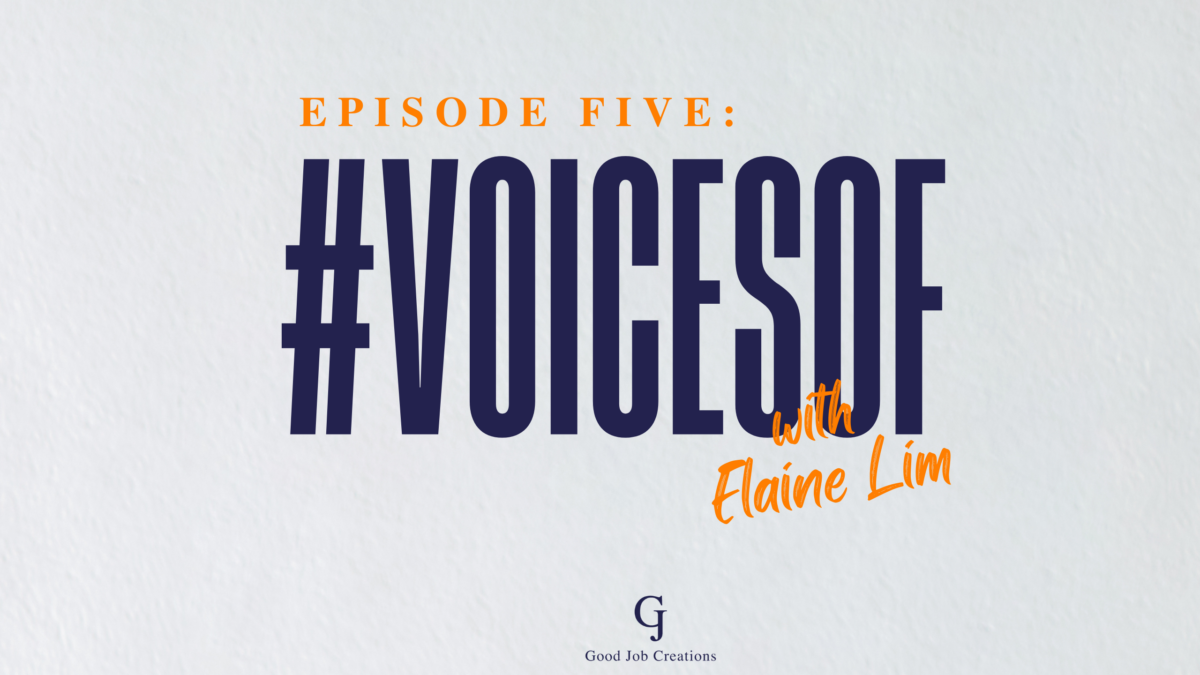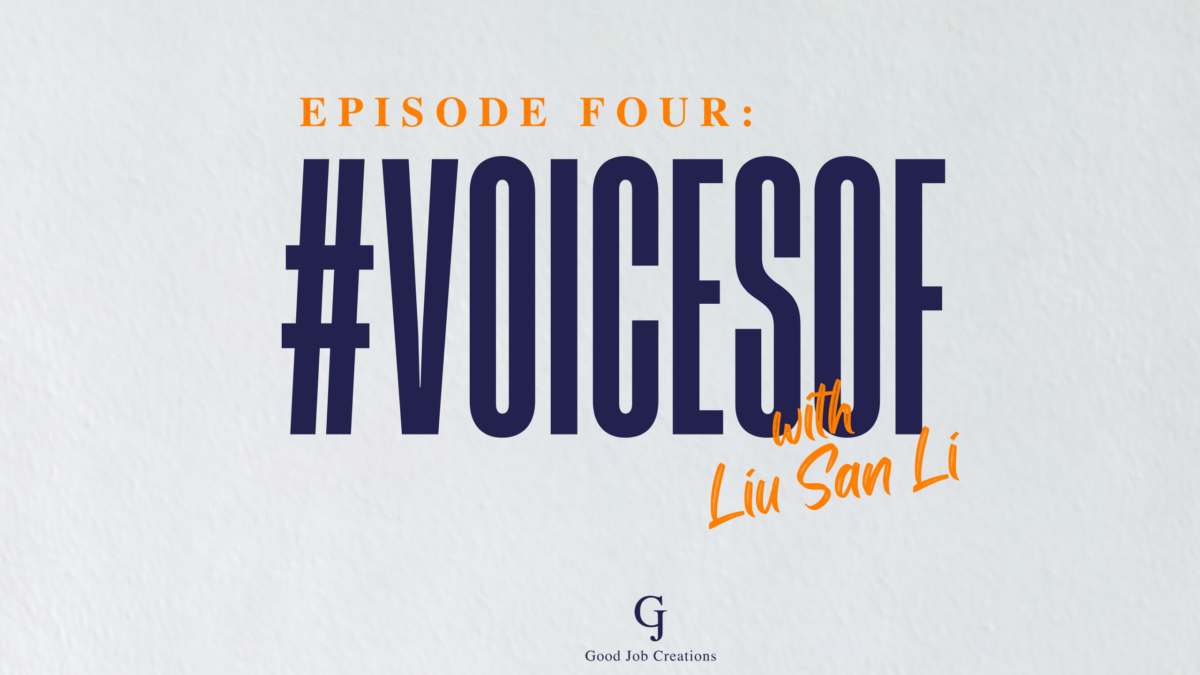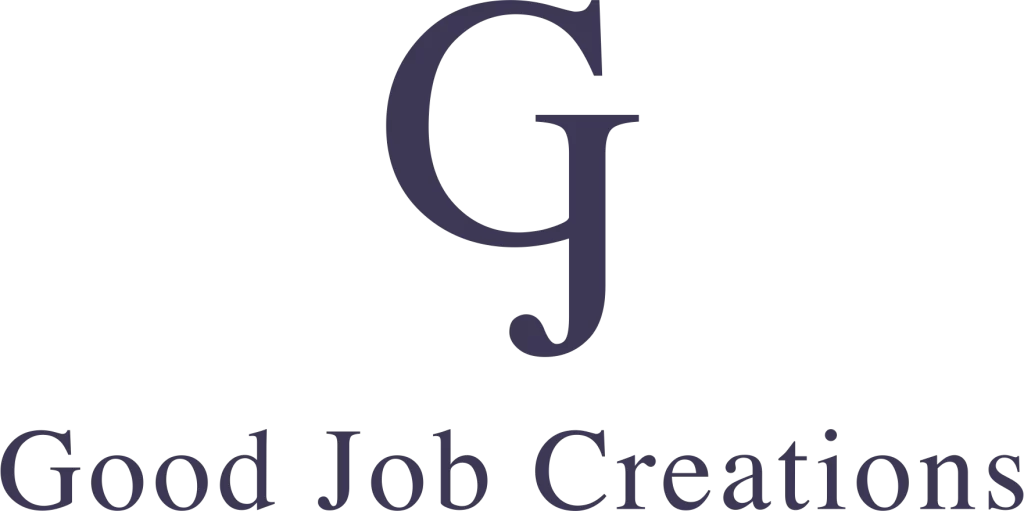#Voicesof…Keika-san: Adaptability in The Unknown
gjc
on
October 27, 2023
Catch a sneak peek here:
or stream the full episode on:
Japanese-born Keika Aoki, shares about moving and adapting in the unknown environment outside of her homeland.
Transcript of Podcast:
[00:00:00] Destiny: You’re listening to GJC’s podcast. I’m your host, Destiny Goh.
Getting out of your comfort zone can be both daunting and exciting. It’s the adrenaline rush and the fear of uncertainty of not knowing what awaits you.
Some might come up with a conclusion to say the grass isn’t always greener on the other side, but despite that conclusion drawn, I think it’s what you’ve experienced, learned, and built through it all that makes it count.
[00:00:26] Destiny: I enjoy listening to the stories of people who’ve been to other corners of the world, whether it’s for education, the start of a new life, or even career.
I believe they have amazing stories to share, especially ones that have to do with adaptability— how they adapt into a new place so well, how they make new friends, how they fit in at their new workplaces, and how they overcome challenges and valuable life lessons that they carry with them.
[00:00:51] Destiny: Joining me on this podcast today is my guest, Keika Aoki. Keika has previously lived in the US, UK and Sweden.
Then after completing her tertiary education in Japan, she decided to move to Singapore to start a career in recruitment.
And it’s been three and a half years since she’s joined GJC and she’s here to share about her experience navigating through Singapore as a foreigner, how she adapted into a new country and career, the challenges and obstacles in and out of work, as well as some valuable life lessons she’s picked up throughout her life living abroad.
[00:01:24] Destiny: Hi, Keika. Thank you for joining me today on this podcast. How are you feeling today?
[00:01:28] Keika: Hi, Destiny. Yeah, I’m feeling great. Thank you.
[00:01:31] Destiny: Can you share with me more about your life back when you were living in the U. S., U.K., and Sweden? How would you describe your life there?
[00:01:41] Keika: Okay, so maybe just for context, before moving to Japan for high school, I grew up overseas, specifically US, UK, Sweden for close to 13 years, and the reason why I was there is due to my dad’s work.

[00:01:58] Keika: He was doing corporate strategy for a Japanese electronics company back then. So, my family and I would follow him wherever he was stationed.
And yeah, I’d say, as hectic as it was having to move maybe every two, three years growing up, it was definitely exciting. And yeah, it was never boring because obviously we were moving around different countries, being exposed to different cultures. It definitely taught me a lot of things growing up.
[00:02:37] Destiny: And out of these three countries, which one was your, by far, your favourite?
[00:02:42] Keika: I’d say UK. I lived in London for five years. Yeah, I have a lot of good memories from when I was there.
[00:02:53] Destiny: Was there anything that you miss most about those countries?
[00:02:57] Keika: Definitely. I miss the aesthetics of London. Everything is really beautiful there. The buildings, the way everything is structured.
And, because personally, I enjoy western food. I do miss the food as much as everyone says that, you know, UK food is not good, I actually enjoyed it.
[00:03:21] Destiny: So, what was your favourite dish back then?
[00:03:23] Keika: See, there’s no dish. I just enjoy western food in general. So, when I moved back to Japan, because everything is mostly Japanese food. Um, it did take some time to get used to it.
[00:03:37] Destiny: And do you experience a culture shock back when you moved to Japan after living abroad for so many years?
So, moving back to your home country, was it exciting? Was it frightening? How was it like for you?
[00:03:50] Keika: Yeah, definitely. When I first, when my parents first told me that we were moving back to Japan, I cried, like I bawled my eyes out because of how much I didn’t want to move back to Japan.
Just because, growing up overseas as a Japanese, but having no experience living in Japan, it was like I was Japanese, but there was nothing in really Japanese about me that I personally resonated with.
[00:04:24] Keika: So, it was definitely frightening to have to move back or, you know, like move to a new place that was supposed to be my home.
And definitely when I moved to Japan, everything was a culture shock.
Like the way people behave, the values, even the lifestyle was very different. It was the first Asian country that I lived in. So, yeah, it was different.
Because I would go to Japan for summer or winter holiday, maybe every two years, but it was very different having to travel there and to live there. So, yeah, everything was different.
[00:05:07] Destiny: How was life like back in Japan for you? How long did it take you to settle down?
[00:05:16] Keika: Definitely the first, maybe two, three years, I’d say I was quite unstable. Maybe because I was a teenager or because I was still getting used to the environment.
But now that I think about it… not that I was lashing out at my parents but just looking back to like the way I was feeling back then and my behaviours, I think I was under a lot of stress.
[00:05:49] Destiny: How do you finally manage to overcome this stressful period and eventually fitting in and then meeting new friends
[00:06:02] Keika: Um, luckily, making friends was never something that I struggled with. I had friends, but really feeling comfortable in Japan took maybe three years for me. And the way I did it was, I think just be humble, like accept that I was in a different place.
And that everything that I knew until that point was going to be different naturally in a different country.
[00:06:33] Keika: And also, to try to see the good in each culture. So, I think in the first maybe two, three, I kept thinking, I kept looking at the bad part of Japan, like, you know, the cultural, there were just some things that I just couldn’t get used to in Japan that I didn’t have to experience back when I was overseas, so…
Yeah, I just kept looking at the bad things, but once I started to notice the good things about Japanese culture, Japanese history, it really helped me to really love the country.
[00:07:14] Destiny: Why do you choose a career in recruitment?
[00:07:16] Keika: Okay, so I chose recruitment as my career right out of university because I wanted to start somewhere that will allow me to have a real general understanding of the corporate world.
And in that sense, recruitment, in my opinion, was the best choice because it allowed me to be exposed to various industries as well as really allow me to have an understanding of how corporate organisations are structured.
[00:07:46] Destiny: And how do you find meaning in your job?
[00:07:48] Keika: Okay, so in my first couple of years, my role was very meaningful to me because it really allowed me to be in connection with so many different people, whether it be the HR of an organisation, top management to C-suite level people.
So, it really gave me opportunity to meet with many new people. And currently, for now, I’m leading a team of four members in the business development team.
So now I find meaning in my job by guiding junior members and yeah, just listening to their struggles, thinking of how to overcome those struggles together.
[00:08:36] Destiny: Mm-hmm. Could you share with us what are some cultural differences you found to be different between Singapore and your home country, Japan?
[00:08:44] Keika: I’d say that my experience relocating to Singapore was much smoother than what other people would typically experience, just because I already had experience living overseas from a young age.
I’d say I’m relatively accustomed to adapting to different communities, but still having experience living in the, say, U.S., U.K., and Sweden was very different from living in Singapore, which was the first Southeast Asian country that I lived in.
And I’d say the main cultural difference between Singapore and Japan is just how friendly and open people in general are.
[00:09:26] Keika: So not saying that people in Japan are not friendly, but usually strangers are just, I mean, like polite or cordial to each other, but in Singapore, I noticed that regardless of whether you personally know each other or not, people are generally warmer and more accepting.
So, one example of this would be just when I, when I just joined this company, my colleagues would invite me over to their houses for holidays and special occasions, which doesn’t usually happen in Japan unless you’re really close to the person.
[00:10:06] Destiny: Well, that’s really, really nice of them. And what are the initial challenges after your relocation to Singapore? And how do you tackle them?
[00:10:14] Keika: Right, so the biggest challenge I faced right after I moved was definitely the COVID situation because I was in Singapore by myself with no relatives, no friends, just starting my career.
And yeah, with COVID, I couldn’t go out, I couldn’t make new friends, no community to help me. So yeah, the first couple of years was definitely lonely. But right after when COVID started to settle, I started to make some new friends.
And the way I did that, I say, is just to take it slow and to make it known that you’re looking for connections.
[00:10:54] Keika: So, what I mean here is you will meet one friend, and then just who will then introduce you to maybe one of their other friends that you just venture out from there.
So, you don’t need to think about it in a way that you need to make many, many new friends in one setting. Just yeah, just get to know each person one by one.
And if you make it known that, oh, I’m actually looking to make new friends, you know, people are generally quite nice here, so they will definitely help you.
[00:11:25] Destiny: And what about the people who are much shyer, uh, who are, you know, maybe they are not really vocal in expressing their needs to make new friends. So, what’s your advice for people who are typically on, you know, the quieter end?
[00:11:43] Keika: I’d say to take it slow because definitely, I myself am not a very extroverted person. I’m the type of person who will have maybe one, two, or three very close friends. And, you know, I won’t have like hundreds of friends
So, what I did also was just to maybe find one or two friends that really resonates with you and build your relationship there and not to rush into making more connection.
[00:12:22] Destiny: I think your idea here is to be very intentional with the kind of people that you mix around with and also, your advice to people who are slightly shyer is to make the first step to make an effort, probably with a little encouragement from others.
And I think it’s also important that to know what they intend to get out of these friendships because I think for people who are slightly shyer, they’re not really vocal with what they want.
[00:12:55] Destiny: But I think perhaps with a little encouragement from the people around them, you know, and also if when they see the blossoming of a fruitful friendship and what it may look like, I think that would greatly affect their decisions to do so as well.
And so, what are the kinds of support you received while working and living in Singapore from, say, your family?
[00:13:23] Keika: My family, I’d say we would have video calls every couple of months. So, we would just catch up on how each of us are doing.
And because I was just starting off my career back when I came here, I would share some of the struggles I was facing and get some advice from my parents.
[00:13:45] Destiny: Are your parents currently working now?
[00:13:46] Keika: Yes, my dad’s still working, so he will, yeah, give me advice as a senior in the workplace.
[00:13:56] Destiny: So, he’s back in Japan as well?
[00:13:58] Keika: Yes.
[00:13:58] Destiny: And what about your workplace at GJC? What kind of support have you received from your colleagues or even your managers, and your bosses?
[00:14:07] Keika: So, when I joined there were actually two other fresh grads that came with me, so it definitely helped that there were other people at the same level as I was who were going through similar things.
So, we would, yeah, just catch up on a regular basis, share how we were doing and our struggles, and yeah, just give each other advice.
[00:14:32] Destiny: And what about a local community in Singapore where, where it consists mostly of your friends and your social circle?
[00:14:40] Keika: I’d say this part was something that I struggled with in the first maybe one, two years moving to Singapore because I did struggle making new friends when I just came here.
But recently, now that the borders open and I’ve made many new friends compared to back then, my friends will definitely support me in a way that I can just detach myself from work whenever I’m with people who are outside of work.
So, we will just have fun over the weekend, and it’ll give me a nice, like, refresh session.
[00:15:17] Destiny: Could you share with me, like, what do you do with your friends over the weekend? What kind of activities that you guys, you know?
[00:15:26] Keika: Oh, I mean, it depends, but I do like to go out for, like, cafe hopping with my friends, go to nice restaurants. There are a lot of good food places in Singapore, so we will, like, try to go to those locations.
[00:15:43] Destiny: So how do you maintain a connection with your Japanese culture and roots despite being in a foreign country?
[00:15:50] Keika: I’d say that there are some parts of me that is typically set to be Japanese, so for example, typically people say that Japanese are quite modest and they’re polite, and I feel like those are qualities that I have, and I do take pride in that.
So, yeah, it’s something that I try to keep with me. But, of course, if there are other… say, like, different cultures that I resonate with, I will also incorporate that in my life.
[00:16:24] Destiny: And I also realised that before you and our other Japanese colleagues, before they leave the office to have a client visit, there’s a term that you would let everybody know that you’re going out?
[00:16:37] Keika: Oh, itte kimasu.
[00:16:38] Destiny: Yeah. And I feel that that’s really nice to let your colleagues know, like where you’re going and stuff.
So, I feel that that’s you basically still retaining that side of you that’s really Japanese and really courteous and polite.
[00:16:57] Destiny: And can you share with me your experience as a foreigner navigating through the workplace in Singapore? And what are some memorable experiences you’ve had being here?
[00:17:08] Keika: I say one main reason why I enjoy going to different places is because it allows me to travel to locations that I will usually not go.
And in Singapore, I feel like each location has its own unique vibe and atmosphere, which is something that I still to this day enjoy experiencing.
[00:17:31] Destiny: And you know, I think most people, at least from what I heard, you mentioned that Singapore there’s not much to explore, perhaps maybe for locals, but for foreigners like ourselves, do you think the same way?
[00:17:48] Keika: Um, well, definitely it is a small country. So, after maybe a few years, you kind of just get used to all the locations out there, but I am still interested in the difference between Japan and Singapore.
And I’m still amazed at how different, but similar some parts of some cultures are.
[00:18:14] Destiny: And, you know, aside from cafes, maybe there could be one or two places, a place that you would recommend to your friends who are visiting from Japan. Are there places as such?
[00:18:25] Destiny: For me, for example, I love Universal Studios. I know that it’s not the biggest place, but I just find it to be a really exciting getaway.
And because I just, you know, whenever I head over there, I just feel like I kind of forget the stress that’s behind me. And I thoroughly enjoy myself over the really thrilling, exciting rides. And I feel like I just can’t get enough of it.
[00:18:52] Keika: Okay, and in that sense, I always recommend East Coast Park to my friends coming to Singapore because I’m from Tokyo, a lot of my friends are also from Tokyo, which is the city area.
So East Coast Park is just a nice place, like, a place that you can see the ocean, and there’s the greens, and there’s also the hawker centres, which we don’t have in Japan, so it’s a different experience.
[00:19:24] Destiny: There is no hawker centres at all in Japan?
[00:19:25] Keika: No.
[00:19:27] Destiny: And, oh okay, that’s interesting. I didn’t know that.
[00:19:31] Destiny: Okay, so were there life lessons that you’ve learned while working here at GJC that have helped you become a better individual?
[00:19:40] Keika: Um, working in a multicultural environment has definitely taught me to be more open minded and patient with others. Because I say communication in general is a very complex thing, even within the same community.
So, interacting with colleagues and even clients of different backgrounds and nationalities is an even bigger challenge. And even more, for some people, English is their second or even third language, so there’s the language barrier as well.
So, now that I’ve worked here for over three years, it’s, I feel like now I always try to understand the deeper context of what people are trying to tell me, even if it’s not stated clearly in their speech or message.
[00:20:30] Destiny: How do you make out the, the context of what people are saying? I know that, you know, communication is a skill, and it’s easily thrown around by everybody.
But I feel that sometimes all talk and no listen isn’t exactly communication. But maybe for you, it might be different. So, what efforts do you take to initiate to understand people on a on a deeper level?
[00:20:58] Keika: Like whenever I’m communicating with people I always try to think like, oh what is this person trying to tell me, what are their intentions behind their messages? Like I really try to read into the deeper meaning, and sometimes there’s no deep meaning- deeper meaning.
So, I don’t maybe necessarily need to do it all the time, but I’d say definitely it’s helped me to avoid miscommunication on various occasions.
[00:21:30] Destiny: Great. So, do you have any advice? You know, for fellow women who are thinking about or have plans to relocate to Singapore?
[00:21:39] Keika: Yeah. So as a woman living alone in a foreign country, it can definitely seem intimidating, especially if it’s far from your home country. But I can definitely say that Singapore would be one of the best options out there, just because how safe and convenient everything is here.
It is a small country, like for one, you don’t have to worry about traveling for hours just to get somewhere, and also the taxi here is very convenient.
So even if you’re out for dinner or you’re out late, you don’t have to worry about getting home safely, which is one of the most important things living by yourself in a foreign country.
[00:22:27] Destiny: Yeah. I feel like I can totally vouch for this because this is something that I think, especially women, we ourselves will never take this for granted. And I think Singapore is yes, indeed, definitely one of the safest places that I have personally been.
I don’t have to worry if my laptop will be stolen if I leave it on the table for too long. I guess people are generally more honest in being here.
I think I do appreciate the law and especially, you know, when, when laws are stricter, I feel that it also gives people a sense of security, I feel like to really keep the country together.
[00:23:12] Destiny: So, maybe you can share, you know, how do you build this skill of adaptability? Because hearing from what you’ve been telling me that you’ve lived in, I would say, various countries, how do you adapt from one country to another?
How do you fit in into the society and everything else?
[00:23:33] Keika: So, one is to be open minded. You need to understand that you are the one that is in a foreign environment. So just keep an open mind that most likely everything you know will be different.
And another thing will be to take interest in the local community, whether it be their culture, their background, their history. Understanding why some things are the way it is will definitely help you understand the way the modern, you know, the society that you are in at that time is the way it is.
[00:24:11] Destiny: So, I feel that I’ve learned greatly from you today on this podcast, Keika. Thank you so much for joining me.
[00:24:19] Keika: Thank you so much.
[00:24:22] Destiny: Uh, yeah, for joining me and, and, you know, telling me your stories, like what you’ve been doing in the past and how you have blossomed from, you know, from a fresh graduate into a full-blown working adult.
[00:24:32] Destiny: And it’s been three and a half years since you’ve been in Singapore. I hope you have been enjoying your time here.
[00:24:37] Keika: Yeah, definitely!
[00:24:39] Destiny: And I just wish you all the very best in everything that you do. To our audience, I hope that there will be huge takeaways for you through this podcast with Keika. Thank you so much, Keika!
[00:24:52] Keika: Thank you so much!
Podcast written and edited by Destiny Goh
Marketing Communications Executive

